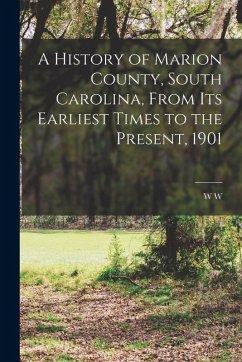
Plantation Sketches
Versandkostenfrei!
Versandfertig in über 4 Wochen
15,99 €
inkl. MwSt.
Weitere Ausgaben:

PAYBACK Punkte
8 °P sammeln!
"Plantation Sketches" offers a fascinating glimpse into plantation life in North Carolina during the Civil War era. Through detailed observations of social life and customs, Margaret Devereux paints a vivid picture of Southern culture and the complexities of the time. This historical work provides invaluable insights into the daily lives of both white landowners and African Americans living and working on plantations. Explore the nuances of a bygone era as Devereux meticulously documents the intricacies of plantation society. The book serves as a significant historical record, illuminating the...
"Plantation Sketches" offers a fascinating glimpse into plantation life in North Carolina during the Civil War era. Through detailed observations of social life and customs, Margaret Devereux paints a vivid picture of Southern culture and the complexities of the time. This historical work provides invaluable insights into the daily lives of both white landowners and African Americans living and working on plantations. Explore the nuances of a bygone era as Devereux meticulously documents the intricacies of plantation society. The book serves as a significant historical record, illuminating the social structures and interactions that defined the period. A valuable resource for anyone interested in the history of the American South, "Plantation Sketches" offers a unique perspective on a pivotal time in American history. This work has been selected by scholars as being culturally important, and is part of the knowledge base of civilization as we know it. This work is in the public domain in the United States of America, and possibly other nations. Within the United States, you may freely copy and distribute this work, as no entity (individual or corporate) has a copyright on the body of the work. Scholars believe, and we concur, that this work is important enough to be preserved, reproduced, and made generally available to the public. We appreciate your support of the preservation process, and thank you for being an important part of keeping this knowledge alive and relevant.














